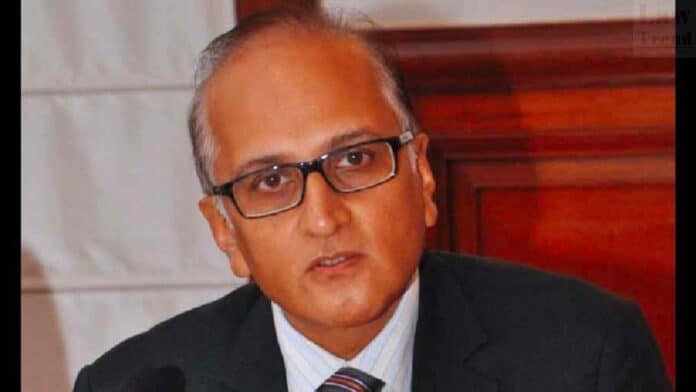Supreme Court judge S Ravindra Bhat on Saturday expressed concern over every institution in the juvenile justice system working “below” its strength, saying such a large number of vacancies have a debilitating effect which could turn these bodies into “paper tigers” on matters of child protection.
The apex court judge, who heads the Supreme Court Committee on Juvenile Justice and Child Welfare, placed the issue “at the centre stage” during the inaugural session of its two-day national consultation and cautioned against “breakdown of the system” if the institutions become non-functional due to shortage of staff and officials.
The national consultation is being organised by the Committee on September 23 and 24 on best practices followed in states and to further strengthen the justice system for children in conflict with law.
The inaugural event was attended by Union Minister for Women and Child Development Smriti Irani, Supreme Court judge B V Nagarathna and other dignitaries including Cynthia McCaffrey, Representative of UNICEF India.
“Every institution – whether juvenile justice boards or child welfare committees or other such institutions – are running below their strength in the sense that most of them have a large number of vacancies.
“These vacancies are actually very debilitating and they paralyse the system. Without the full strength of the child welfare committee or the appropriate available quorum, the committees is unable to function,” said Justice Bhat in his keynote speech.
“Unless we establish and come out with a common protocol which makes it binding upon all the states, these institutions will become just paper tigers. They will be meaningless if you have to provide for the protection of children,” the apex court judge stated.
Justice Bhat said that the approach and initiative should be that a child delinquent can and should be reformed and therefore reformation must be the primary driver of all decisions taken for them.
The judge added that measures like “group counselling” and “community services” should be adopted within the judicial framework for juveniles, stating that institutions are the last resort that must be as far as possible.
He also said that due focus should be put on providing education to children in such institutions.
“Analysis revealed that in terms of the judgement passed on children in conflict with law, being dealt with a ‘fine’ emerged as the most prevalent followed by ‘sent home after advice or admonition’ .
“We need to encourage group counselling and community services as relevant within the judicial framework and in our judgements. In all cases, children released on probation are likely to be placed back with the family. While the child is in the institution even if the short-term efforts must be undertaken to facilitate education, counselling, sports and life skills education,” he stated.
Justice Bhat called for a “multi-stakeholder approach” to achieve the objectives set out under the Juvenile Justice Act and to realise the best interest of the child.
He also pressed for the identification of barriers to “equitable and timely justice for children” and to establish closer coordination among different stakeholders, improving the capabilities of stakeholders as well as implementing child-friendly procedures and adopting the “prevention approach”.
“Due to their dependent status, children are most vulnerable when they come in contact with the justice system, either as children in conflict with the law or as a need of care and protection.
“A child who has come into conflict with the law is a child who has been in or continues to be in difficult circumstances. It is, therefore, imperative for us to prioritise a prevention approach,” Justice Bhat said.
“In transiting from being stakeholder to shareholders in the care and protection of all children, especially the most vulnerable, prevention of child offending must receive the utmost attention,” he added.
In his address, Justice Bhat also shared his concern with respect to a young person living in a care institution seizing to be a “child” at the age of 18 and said information about the assistance available to them must be widely disseminated.
“The world is uncertain for them (after turning 18), especially from the point of view of a child who has been in a care institution, who has seen no parent or parents. When he or she comes out, he’s in the void,” the judge said.
Also Read
“I’m told that some financial assistance is given. I think it is our duty to ensure that whatever resources are available information about these are disseminated to them in the widest possible manner,” he stated.
The judge also underscored the important role of an “empowered family and community” as a “safety net” for children from abuse, neglect, exploitation, violence and harmful practices.
“We must as individuals, citizens and duty bearers, leverage knowledge, technology and social resources to identify vulnerabilities and mitigate them in our joint endeavour to prevent children from coming into conflict with law,” Justice Bhat said.
The Supreme Court has been conducting national stakeholder consultations annually, bringing partners from the Ministry of Women and Child Development and other relevant government sectors, the national and state commissions for the protection of children’s rights and others.
The aim is to bring momentum, attention, oversight and direction to priority areas related to the protection of children in the country, an official release has said.




